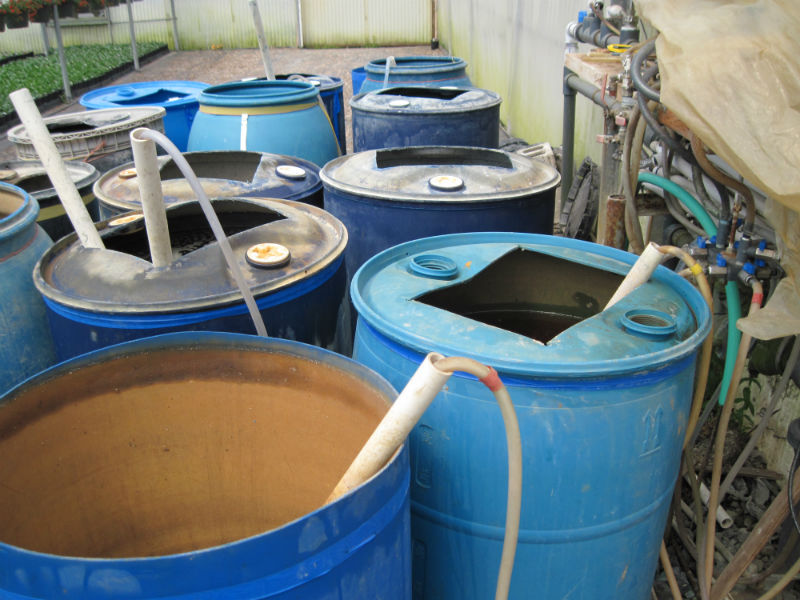The Koida Greenhouses have been around for nearly a hundred years and have been owned by the Koida Family for several generations. The original nursery was used to bring flowers to market in Portland, OR. Koida supplies plants to the Garden Center where I work. Steve Beilman, our Sales Rep and my Garden Guru, offered the chance of a tour. I wanted to understand the operations of a nursery and discovered many wonderful things along the way!
The nursery is located just outside of Portland in the city of Milwaukie on about 10 acres of land. Here is a row of greenhouses with hoop
houses behind them.
Inside the greenhouses
plants line the floor with hanging baskets above. The average temperature is
kept at 65 to 70 degrees.
Doors open into each greenhouse connecting them making it easy to move from one to another.
Plants start from seed or
plant plug. Plant plugs come from other nursery wholesalers, which take
starts from a cutting or seed then put them in a pot and ship them worldwide. Many
come from warmer countries like Honduras and some of the big wholesalers ship plant starts to Asia, Europe and North America in boxes by plane.
These gallon pots hold three plant plugs each. Koida uses
computer programs to track their plants from growth to sale. This determines
cost per pot including: soil, fertilizer, plastics (pots, tags, flats), transportation and labor. Like any perishable, some plants fail. Here you can see the smaller plug in the center pot is failing. Analysis will be completed to determine the problem. Sales ready pentas, at about 18" in red, white and pinks, are available in my Garden Center right now.
It takes 3 to 4 weeks for a plant to
be sales ready. The plant on the right is a small wax begonia plug and the plant on the left is sales ready.
A water system with picks
run along the ceiling for baskets and along the ground for pots.
These tanks contain
fertilizer; for either nutrients, growth control or elements for root start.
An important part of Steve’s
job is to walk the nursery and determine what plants are ready for market. Are
the flowers peeking with color? Or is the plant past its bloom time? Some plants become compost or are saved for market later. The petunia’s on the left have been cut down to produce new blooms, while the petunia’s on the right are
too tall for market and awaiting a decision whether or not they will be
composted.
Steve holds a petunia that has been cut back, already new growth (center of plant) is getting ready to bud?
A snowy field of alyssum.
Beautiful!
These sunflowers have been
picked through by the pickers to ship out to the stores.
Old crops like this
hellebore, sold in my store this past January, will be cut back, wintered
and will be bigger plants for next season.
Space is not wasted here as plants line the outsides of the greenhouses. Notice the roof has moveable glass panels that control air
flow. To the left is one of Steve’s favorite flowers liatris or ‘Gayfeather.’
All that remains
of a crop of lupine, a very popular springtime flower. Hoop houses shelter other crops in the background.
Fields of flowers with a
residential neighborhood bumping up next to them.
Koida produces some
amazing hostas. This is one of my favorites this year called ‘Cherry Berry.’
Pickers place the flower
orders on these racks.
They are then transported to
a holding area.
Here flowers wait on racks
to the left as a truck is loaded in the distance.
Thanks Steve for a great
tour! I look forward to the next time I can come visit you and the wonderful plants at Koida.
























Way cool information! Thanks for posting!
ReplyDeleteThanks for following!
ReplyDelete